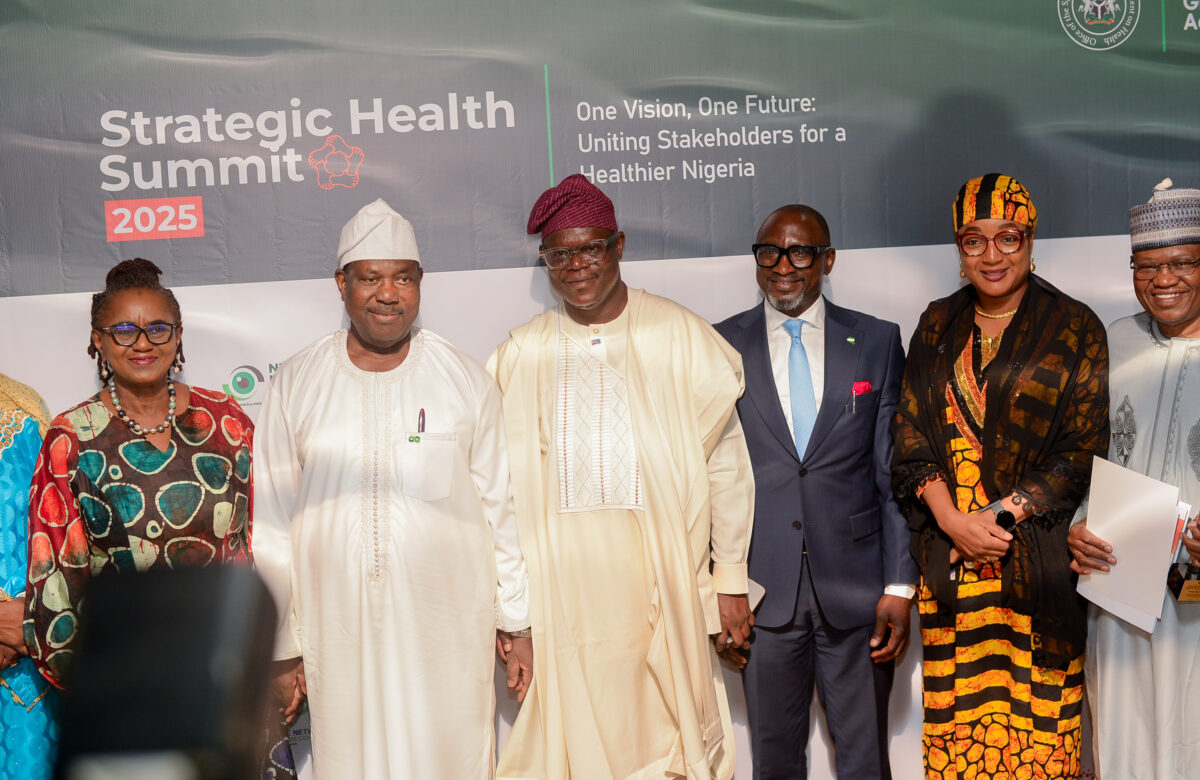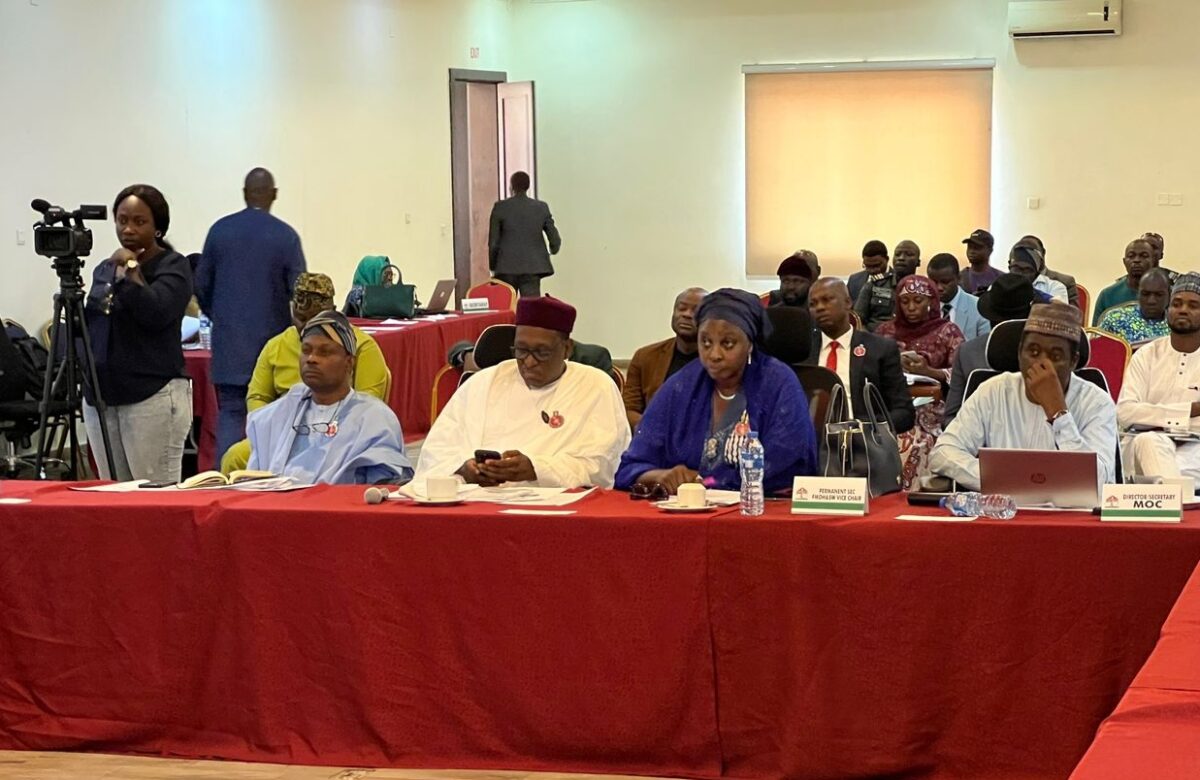HSRC Holds a Policy Dialogue on the BHCP Sector-Wide Approach (BHCP-SWAp) of the FG
- BHCPFHealth Sector
- No Comment
- 1194

To enhance healthcare delivery and advance Universal Health Coverage (UHC) goals in Nigeria, the Health Sector Reform Coalition (HSRC), is collaborating with the Prof. Ali Pate led Ministry of Health and Social Welfare towards ensuring the effective implementation of the Ministry’s new Nigeria Health Sector Renewal Initiative (NHSRI).
The NHSRI serves as a strategic blueprint crafted to guide the implementation of a contextually tailored, sector-wide approach, fostering innovation, comprehensiveness, and coordination. The primary objective of the NHSRI Basic Health Care Provision Sector-Wide Approach (BHCP-SWAp) is to enhance health outcomes across Nigeria.
HSRC, on Tuesday the 27th of February 2024 convened various stakeholders in a policy dialogue to discuss the new policy direction as well as identify areas of support for its efficient implementation. The meeting had in attendance the Director of the Department of Health Planning, Research, and Statistics (DHPRS), Federal Ministry of Health (FMoH), Dr Chris Osa Isokpunwu, a representative of the Special Adviser to the President on Health, the Country Director of the Global Health Advocacy Incubator, and the Executive Director of LISDEL, other members of HSRC, donors, partners and media practitioners who participated both online and as in-person.
In his welcome address, Dr. Idris Mohammed, the Chairman, Board of Trustees of the Health Reform Foundation of Nigeria (HERFON), and Secretary of the (HSRC), said that the BHCP-SWAP initiative, launched by the Federal Government aims to bolster primary healthcare services, improve infrastructure, and expand health insurance coverage across the country. He further noted that the HSRC has embarked on a collaborative endeavor to scrutinize its effectiveness and identify areas for improvement in the Nigerian healthcare services holistically.
The Interim Committee Chairperson of the HSRC, Mrs. Chika Offor, in her opening remark, stated that a team in the coalition will conduct a thorough examination of the BHCP-SWAP, assess its impact on healthcare access, quality, and equity, adding that the analysis will encompass a range of dimensions, including service delivery, financial management, accountability, and community engagement. According to her, the aim of examining the BHCP-SWAP is to provide valuable insights that will inform policy decisions and drive improvements in healthcare delivery in the country.
Dr. Chris Osa Isokpunwu, in his presentation highlighted that the BHCP-SWAP is not a program nor a project, it is simply an approach of the FMOH to achieve better results for the sector. He noted that the NHSRI comprises basic healthcare provision through a sector-wide approach (SWAp) and the healthcare industrialization program. According to Dr Chris, the BHCP will be managed via real or notional pooling of all available funds. The Nigeria healthcare industrialization fund will be a specially dedicated pool of funds to drive investment in the healthcare value chain.
“The Government of Nigeria has set out a strategic vision for the health sector to be achieved within four years. The overall goal of the strategic vision is to save lives and reduce both physical and financial burdens to achieve health for all Nigerians” he said.
He emphasized that the Federal Ministry of Health has set out four pillars to achieve the strategic vision through effective governance; efficient, equitable, and quality health system; unlocking value chains, and health security.
He mentioned that digitization of health systems, efficient allocation of resources, and human resources for health as some of the key enablers to achieving the strategic vision.
Through the BHCP-Sector-wide approach of the Nigeria Health Sector Renewal Initiative (NHSRI), the government seeks to increase antenatal coverage, increase skilled birth attendance, increase Health insurance coverage, improve patient satisfaction within PHCs, etc. and reduce the under-five mortality rate, neonatal mortality rate, and stunting among other critical health indicators.
According to Dr. Chris, some of the key priority interventions of the NHSRI will lead to the expansion of UHC, increase immunization coverage, improve nutrition among children, establish a responsive emergency readiness system, improve human resources for health, strengthen primary healthcare, and increase primary healthcare utilization.
Dr. Chris disclosed that an implementation plan for the NHSRI is on the way and will soon be unveiled to guide the effective implementation of the laudable initiative of the federal government.
Earlier, on the 12th of December 2023, during an occasion to commemorate the UHC Day, His Excellency, President Bola Ahmed Tinubu GCFR signed a health sector compact with State Governors and development partners to improve population health outcomes at scale using a sector-wide approach.
Other stakeholders who spoke separately in their goodwill messages at the policy dialogue also expressed commitment to supporting the initiative of the federal government to ensure quality, equitable, and affordable access to healthcare for all Nigerians. They mentioned the need for accountability and transparency in the smooth implementation and what success looks like if fully implemented.
The significant policy dialogue also marks the Annual General Meeting of the HSRC where history was made through the adoption of a charter for the coalition by its members.
Contributed by Philip Akoso| LISDEL.




